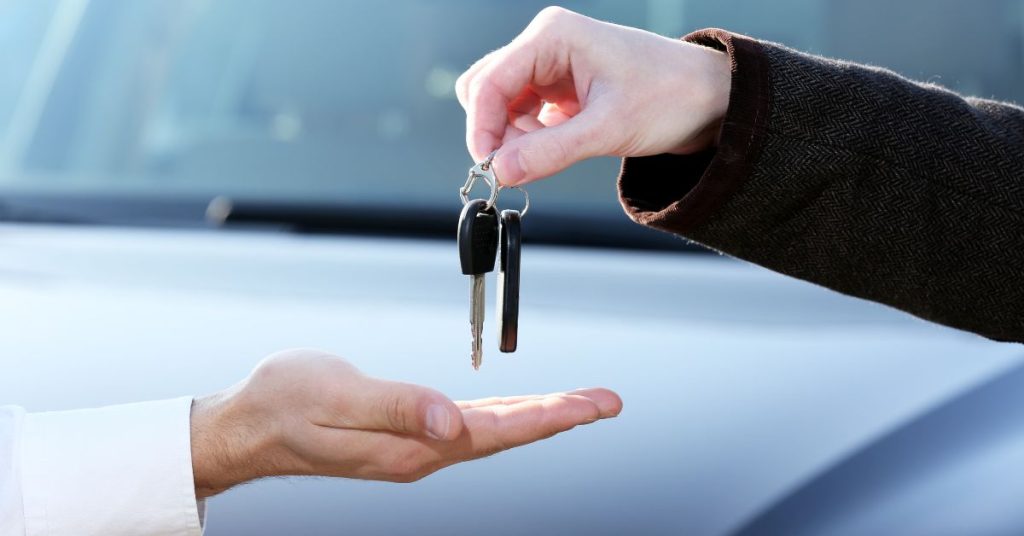Are you a potential homebuyer with a car repossession looming over your credit history? Fear not, for the Federal Housing Administration (FHA) may still offer you a lifeline.
While a car repossession can certainly be a blemish on your financial record, it doesn’t necessarily mean that you’re out of the running for an FHA loan.
So, let’s delve into the details and explore how you can potentially secure an FHA loan despite this unfortunate setback.
FHA Loan Overview
Let’s take a closer look at what an FHA loan entails. Essentially, it’s a mortgage that’s insured by the FHA and issued by an FHA-approved lender. This means that if you default on your loan, the FHA will cover the lender’s losses.
Its key benefits include a typically lower down payment than traditional mortgages and credit score requirements that are generally more lenient than those for conventional loans. However, it’s worth noting that there are limits to how much you can borrow with an FHA loan, and these vary depending on where you live.
You’ll also need to pay mortgage insurance premiums (MIP) throughout the life of your loan.
What Qualifies as a Car Repossession?

A car repossession is when you default on your car loan and the lender seizes your vehicle as collateral. This can happen for a variety of reasons, such as missed payments or failure to maintain insurance coverage.
Once the car is repossessed, it’s typically sold at auction to recoup some of the lender’s losses. The repossession will then be reported to credit bureaus and will remain on your credit report for up to seven years.
Understanding FHA Loan Requirements
To understand how car repossession will affect your chances of getting an FHA loan, you need a clear understanding of FHA requirements.
We’ve created this table to give you a snapshot of what lenders require of you. Pay particular attention to their credit score requirement – your credit score is most likely to take the biggest hit by a car repossession.
Homeowner Requirements:
- Credit Score: 500 and above.
- Down Payment:
- 10% if credit score is between 500-579.
- 3.5% if credit score is 580 or higher
- Debt-to-Income Ratio: 43% or below.
- Income Requirement: No official minimum or maximum requirements.
- Mortgage Insurance: You MUST get mortgage insurance. Your upfront mortgage insurance premium (MIP) is 1.75% of your loan. Your monthly or annual insurance premium is determined by your lender and your other qualifications.
If you find that regardless of your car repossession, you meet all of these requirements, you are definitely in a good space. If not, take a look at some of the ways car repossessions affect FHA loan eligibility and how to circumvent them.
How Car Repossession Affects FHA Loan Eligibility

Now, let’s address the elephant in the room – your car repossession. While this can certainly be a red flag for lenders, it doesn’t necessarily mean that you’re automatically disqualified from getting an FHA loan.
In truth, car repossession does impact your financial well-being in a variety of ways, and we need to fully understand the effects, to be able to counter them.
Here are some of the ways your financial well-being may be affected by a car repossession:
Credit Score
Car repossession can have a significant negative impact on your credit score. This is because missed payments and defaulted loans are among the most damaging factors for credit scores.
When you default on a car loan and the car is repossessed, it can stay on your credit report for up to seven years, which can make it more difficult to get approved for an FHA loan.
Debt-to-Income Ratio
Your debt-to-income (DTI) ratio is an important factor when it comes to getting approved for an FHA loan. This is the percentage of your monthly income that goes towards paying off debt.
If you’ve had a car repossessed, you may have an increased DTI ratio from missed payments or fees associated with a defaulted loan, making it more difficult to qualify for an FHA loan.
Down Payment
Another important factor in FHA loan eligibility is the down payment. While FHA loans generally require a lower down payment than other types of loans, the down payment requirement can still be a barrier for some borrowers.
If you’ve had a car repossessed, it may make it more difficult to come up with the down payment required for an FHA loan as you deal with the financial fallout of the repossession.
Timing
Timing really is everything. The timing of your car repossession can also impact your eligibility for an FHA loan.
If the repossession occurred more than three years ago, it may be less of a factor in your eligibility. However, if the repossession is more recent, it may have a greater impact on your ability to qualify.
Note that these factors also come to play whether it’s refinancing your home with an FHA loan or purchasing and renovating with an FHA 203k loan.
Tips for Improving FHA Loan Eligibility After a Car Repossession
If a car repossession has happened, there is little to nothing you can do about that.
But luckily, there are some significant things you can do to get your financial health back on track and prove to FHA lenders that you are a great candidate for an FHA loan.
Here are some steps you can take to improve your financial situation and increase your chances of getting approved:
- Improve Your Credit Score: As mentioned earlier, a car repossession can have a negative impact on your credit score. However, there are steps you can take to improve your credit score over time. These include paying your bills on time, paying down debt, and disputing any errors on your credit report.
- Build Up Your Savings: FHA loans generally require a down payment of at least 3.5% of the home’s purchase price. Building up your savings can help you meet this requirement and also demonstrate to lenders that you have a solid financial foundation.
- Pay Off Other Debts: In addition to a car loan, other types of debt can impact your eligibility for an FHA loan. Paying off other debts, such as credit card balances or student loans, can help lower your debt-to-income ratio and increase your chances of getting approved.
- Work with a Knowledgeable Lender: Finally, working with a lender who is experienced in FHA loans and can help guide you through the process can be extremely helpful. They can provide you with personalized advice and guidance and can help you understand your options for improving your eligibility after a car repossession.
Remember that everyone’s financial situation is unique, and what works for one person may not work for another.
Speaking with a knowledgeable lender and working on a plan to improve your financial situation is sure to help increase your chances of getting approved for an FHA loan.
So, if you’ve had a car repossession in the last few years but still fancy a house in any of our service areas, give us a call and we’d be delighted to get your homeownership dreams back on track.
Alternative Financing Options for Homebuyers With Repossession Histories

If you have done all you can, and you are still finding your car repossession to be a major hurdle in securing an FHA loan, don’t lose hope.
There are many other alternatives to making your homeownership dreams come true. We have compiled a list of financing options that may work for you.
Take a look.
| Financing Option | Description |
|---|---|
| Private mortgage | Private lenders who may be more lenient with credit requirements |
| Lease-to-own | An agreement where the buyer rents the property with the option to buy at the end of the lease term |
| Contract for deed | An agreement where the buyer makes payments directly to the seller until the property is paid off |
| Owner financing | An agreement where the seller acts as the lender and finances the purchase of the property |
| Hard money loan | A short-term loan from a private lender that is secured by the property |
| USDA loan | Government-backed loan program for low- to moderate-income borrowers in rural areas |
As you can see, you have multiple options. Take your time going through each one to understand their requirements so you can eliminate any option that you do not qualify for.
Which Alternative Financing Option Is Best?
There is no universal best option. But there is the best option for you, and your financial situation and needs will determine which option that is.
To help you in making that decision, we have created this snapshot comparison of the alternative financing options we listed.
Have a look.
| Financing Option | Interest Rates | Credit Requirements | Down Payment | Terms |
|---|---|---|---|---|
| Private mortgage | Higher | Less strict | Higher | Short-term |
| Lease-to-own | Higher | Less strict | Higher | Short-term |
| Contract for deed | Higher | Less strict | Higher | Short-term |
| Owner financing | Higher | Less strict | Higher | Short-term |
| Hard money loan | Higher | Less strict | Higher | Short-term |
| USDA loan | Competitive | Moderate | Lower | Long-term |
Frequently Asked Questions
Can I still qualify for an FHA loan if I’m currently making payments on a car repossession?
Yes, it is possible to qualify for an FHA loan if you are currently making payments on a car repossession.
However, it’s important to note that the repossession and any missed payments or default on the car loan may impact your credit score and your debt-to-income ratio, which are factors that lenders consider when evaluating your eligibility for an FHA loan.
Additionally, if the repossession is still an outstanding debt, it may impact your ability to meet the down payment and closing cost requirements for the loan.
Can I provide an explanation for my car repossession to improve my chances of getting an FHA loan?
Yes, you can and should provide an explanation for your car repossession to the lender to improve your chances of getting an FHA loan.
However, while an explanation may help the lender understand the circumstances surrounding the repossession, it may not necessarily guarantee approval.
Ultimately, they will evaluate your credit score, debt-to-income ratio, and other factors when determining your eligibility for an FHA loan.
So, Do You Have a Shot?
Yes, you may have a good shot at securing an FHA loan with a car repossession. It may seem like a major setback, but thankfully, it’s not necessarily a deal-breaker.
By understanding the requirements, providing documentation showing that the repossession was due to circumstances beyond your control (if that was the case), and working to improve your financial situation, you may still be able to qualify for this type of mortgage and achieve your dream of homeownership.
Give us a call and we’ll guide you through the process and help you determine whether an FHA loan is right for you, and what alternative financing options are available to you.






